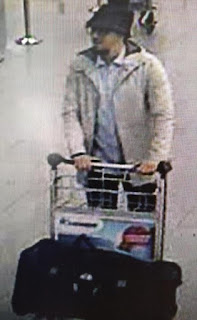Why is there a question stating, "Who is responsible for Donald Trump?" That is nonsense. It is an empty question.
To begin with the Trump campaign reflects the VALUES of the Republicans turning out at his rallies. Is there a question about that? I don't think there is. His rallies are full of enthusiastic Republicans. Questions?
Not only that, but, if there is any entity responsible for the rise of Trump, it is the Republican establishment that has received complete defeat.
There was something like twenty candidates in the beginning? Trump was a choice and he still is.
Donald Trump is addressing issues of concern to Republican voters otherwise he would not be in the race and would have retired to his empire by now. He is also receiving endorsements by very popular people, including Sarah Palin and Dr. Ben Carson. Donald Trump has been endorsed by police and I think it was a police union.
Donald Trump is not taking money and is the only Republican candidate that is not taking money. He has no false reasons to be in the race. As a matter of fact I have been surprised to the degree he is campaigning. He really means it. He wants to be President of the USA because he strongly believes he can solve the problems of the country no one else can.
Donald Trump's ideas are classical Republican. He is a businessman. A successful businessman. The Republican model for the government is to be treated as a business. There is nothing about him that surprises me. The only reason anyone is asking "Who is responsible for Trump?" is because the Republican establishment is pouting.
I don't see one thing wrong with his candidacy. His issues with Muslims and illegal immigrants are based in reality. Are they noble? Do the people of the USA want noble or practical?
He is running for President, he wants to win and he is determined to have a White House that will solve the problems of the country. He doesn't have to do it alone. As a matter of fact it is impossible to do it alone and he has a successful way of moving through the weeds.
The question is silly. Every primary voter is responsible for the candidacy of Donald Trump.
To begin with the Trump campaign reflects the VALUES of the Republicans turning out at his rallies. Is there a question about that? I don't think there is. His rallies are full of enthusiastic Republicans. Questions?
Not only that, but, if there is any entity responsible for the rise of Trump, it is the Republican establishment that has received complete defeat.
There was something like twenty candidates in the beginning? Trump was a choice and he still is.
Donald Trump is addressing issues of concern to Republican voters otherwise he would not be in the race and would have retired to his empire by now. He is also receiving endorsements by very popular people, including Sarah Palin and Dr. Ben Carson. Donald Trump has been endorsed by police and I think it was a police union.
Donald Trump is not taking money and is the only Republican candidate that is not taking money. He has no false reasons to be in the race. As a matter of fact I have been surprised to the degree he is campaigning. He really means it. He wants to be President of the USA because he strongly believes he can solve the problems of the country no one else can.
Donald Trump's ideas are classical Republican. He is a businessman. A successful businessman. The Republican model for the government is to be treated as a business. There is nothing about him that surprises me. The only reason anyone is asking "Who is responsible for Trump?" is because the Republican establishment is pouting.
I don't see one thing wrong with his candidacy. His issues with Muslims and illegal immigrants are based in reality. Are they noble? Do the people of the USA want noble or practical?
He is running for President, he wants to win and he is determined to have a White House that will solve the problems of the country. He doesn't have to do it alone. As a matter of fact it is impossible to do it alone and he has a successful way of moving through the weeds.
The question is silly. Every primary voter is responsible for the candidacy of Donald Trump.
